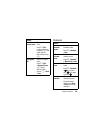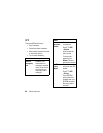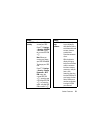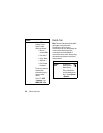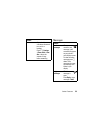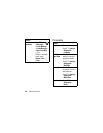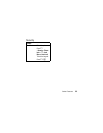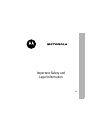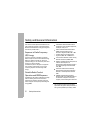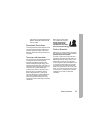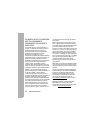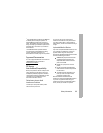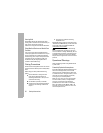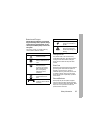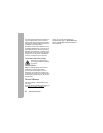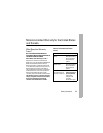
57
Safety Information
Safety and General Information
Safety Information
This section contains important information on the
safe and efficient operation of your mobile device.
Read this information before using your integrated
multi-service portable radio.*
Exposure to Radio Frequency
(RF) Energy
Your phone contains a transmiter and receiver.
When it is ON, it receives and transmits RF energy.
When you communicate with your phone, the
system handling your call controls the power level
at which your phone transmits.
Your Motorola phone is designed to comply with
local regulatory requirements in your country
concerning exposure of human beings to RF
energy.
Portable Radio Product
Operation and EME Exposure
Your Motorola radio product is designed to comply
with the following national and international
standards and guidelines regarding exposure of
human beings to radio frequency electromagnetic
energy (EME):
•
United States Federal Communications
Commission, Code of Federal Regulations;
47 CFR part 2 sub-part J.
•
American National Standards Institute
(ANSI) / Institute of Electrical and
Electronics Engineers (IEEE). C95. 1-1992.
•
Institute of Electrical and Electronics
Engineers (IEEE). C95. 1-2005 Edition.*
•
International Commission on Non-Ionizing
Radiation Protection (ICNIRP) 1998.
•
Ministry of Health (Canada). Safety Code 6.
Limits of Human Exposure to
Radiofrequency Electromagnetic Fields in
the Frequency Range from 3 kHz to 300
GHz, 1999.
•
Australian Communications Authority
Radiocommunications (Electromagnetic
Radiation - Human Exposure) Standard
2003.
•
ANATEL, Brasil Regulatory Authority,
Resolution 303 (July 2, 2002) "Regulation of
the limitation of exposure to electrical,
magnetic, and electromagnetic fields in the
* The information provided in this document
superseedes the general safety information in
user’s guides published prior to May 1, 2006



